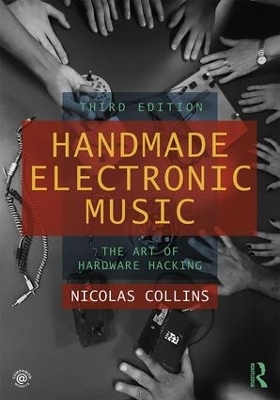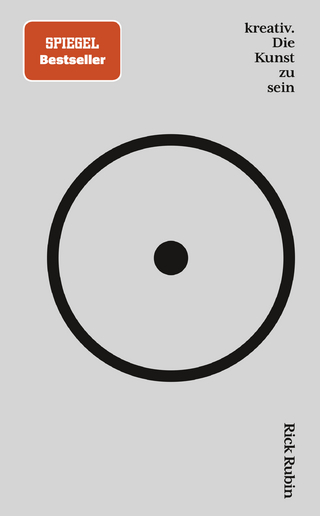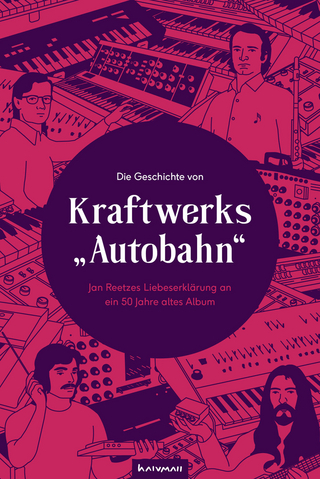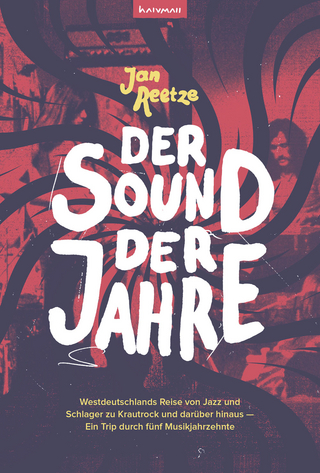
Handmade Electronic Music
Routledge (Verlag)
978-0-367-21010-6 (ISBN)
Handmade Electronic Music: The Art of Hardware Hacking provides a long-needed, practical, and engaging introduction to the craft of making—as well as creatively cannibalizing—electronic circuits for artistic purposes. With a sense of adventure and no prior knowledge, the reader can subvert the intentions designed into devices such as radios and toys to discover a new sonic world. You will also learn how to make contact microphones, pickups for electromagnetic fields, oscillators, distortion boxes, mixers, and unusual signal processors cheaply and quickly. At a time when computers dominate music production, this book offers a rare glimpse into the core technology of early live electronic music, as well as more recent developments at the hands of emerging artists.
This revised and expanded third edition has been updated throughout to reflect recent developments in technology and DIY approaches. New to this edition are chapters contributed by a diverse group of practitioners, addressing the latest developments in technology and creative trends, as well as an extensive companion website that provides media examples, tutorials, and further reading. This edition features:
Over 50 new hands-on projects.
New chapters and features on topics including soft circuitry, video hacking, neural networks, radio transmitters, Arduino, Raspberry Pi, data hacking, printing your own circuit boards, and the international DIY community
A new companion website at www.HandmadeElectronicMusic.com, containing video tutorials, video clips, audio tracks, resource files, and additional chapters with deeper dives into technical concepts and hardware hacking scenes around the world
With a hands-on, experimental spirit, Nicolas Collins demystifies the process of crafting your own instruments and enables musicians, composers, artists, and anyone interested in music technology to draw on the creative potential of hardware hacking.
Nicolas Collins, an active composer and performer, has worked with John Cage, Alvin Lucier, David Tudor, and many other masters of modern music. Dr. Collins is a professor in the Department of Sound at The School of the Art Institute of Chicago, and a Research Fellow at the Orpheus Institute in Ghent, Belgium. He has led hacking workshops around the world. He has been Visiting Artistic Director of STEIM (Amsterdam), a DAAD composer-in-residence in Berlin, and a long-time Editor-in-Chief of Leonardo Music Journal.
Foreword to First Edition (David Behrman)
Introduction
PART I: STARTING
1. Getting Started: Tools and Material Needed
2. The Seven Basic Rules of Hacking: General Advice
PART II: LISTENING
3. The Victorian Synthesizer: Twitching Loudspeakers
4. In/Out: Speaker as Microphone, Microphone as Speaker, the Symmetry of it All
5. How to Solder: an Essential Skill
6. Circuit Sniffing: Eavesdropping on Hidden Magnetic Music
7. How to Make a Contact Mike: Using Piezo Disks to Pick up Tiny Sounds
8. Turn Your Wall into a Speaker: Resonating Objects with Transducers, Motors and More
9. Paper Speakers (Jess Rowland)
10. Tape Heads: Play Your Credit
11. Electret Microphones: Binaural on a Budget
12. Laying of Hands: transforming a Radio into a Synthesizer by Making Your Skin Part of the Circuit
PART III: BUILDING
13. My First Oscillator™: Six Oscillators on a Chip, Guaranteed to Work
14. Solder Up! From Breadboard to Circuit Board
15. Getting Messy: Modulation, Feedback, Instability and Crickets
16. Soft Circuitry: An Introduction to E-Textile Interfaces (Lara and Sarah Grant)
17. On/Off (More Fun With Photo Resistors): Gating, Tremolo, Panning and More
18. Mixers and Matrices: Very Simple, Very Cheap, Very Clean Ways of Configuring Lots of Circuits
19. Boost and Distort: A Simple Circuit that Goes from Clean Preamp to Total Distortion
20. Analog to Digital Conversion, Sort of: Modulating Other Audio with Your Circuits, Pitch Tracking, and a Sequencer
21. Beyond Bending: Triggering, Sequencing and Modulating Circuit Bent Toys (Alex Inglizian)
22. Video Hacking (LoVid (Tali Hinkis, Kyle Lapidus) and Jon Satrom)
23. An Introduction to Op Amps
24. A Little Hacker’s Amp
25. The Mumma-Tudor Ring Modulator (Michael Johnsen and You Nakai)
26. Paper Circuits (Peter Blasser)
27. Rule the Airwaves: Build a Radio Transmitter (Brett Balogh)
28. A Grab Bag of Samples: A Voltage Controlled Radio Receiver (Holger Heckeroth)
29. A Lo-Fi Sampler and Looper (Holger Heckeroth)
30. The Bissell Function Block: A Lag Processor (Peter Speer)
31. Sounds from Neural Networks (Wolfgang Spahn)
PART IV: COMPUTING
32. Sharing Traces: Designing and Fabricating Your Own Printed Circuit Boards with Fritzing (Eduardo Rosario)
33. Microcontroller Sound (Joseph Kramer)
34. Small Sound: Pure Data on the Raspberry Pi (Robb Drinkwater)
35. Data Hacking: The Foundations of Glitch Art (Nick Briz)
PART V: CONNECTING
36. Handmade Sound Communities (Lisa Kori and David Novak)
37. Hello World!
COMPANION WEBSITE CONTENTS
1. Project Support
Sharing Traces -- Designing and Fabricating Your Own Printed Circuit Boards (Eduardo Rosario)
Microcontroller Sound (Joseph Kramer): Data files and additional projects for chapter 33
Paper Circuits (Peter Blasser): Circuit board artwork for Rungling circuit in chapter 26
Sounds from Neural Networks (Wolfgang Spahn): Circuit board artwork for Confetti Neuron circuit in chapter 31
2. Technical Bootcamp
Ohm’s Law for Dummies: How to Understand Resistors
Switches: How to Understand Different Switches, and Make Your Own
Jack, Batt and Pack: Powering and Packaging Your Circuits
Power Supplies: Carbon Footprints from AA to EEE
3. Circuit Bending
Tickle the Clock: Finding the Clock Circuit in Toys
Hack the Clock: Changing the Clock Speed for Cool New Noises
Video Music/Music Video: Translating Video Signals into Sound, Hacking Cameras, and Extracting Sounds from Remote Controls
Beyond the Pot: Photoresistors, Pressure Pads and Other Ways to Play Your Toy
LCD Art: Making Animated Modern Daguerreotypes and Alternate Video Projectors
4. Culture and History
Do It With Others: Hardware Hacking in South America (Florencia Curci, Alma Laprida and Sebastián Rey)
Hacer con Otrxs: Hardware Hacking en Sudamérica (Florencia Curci, Alma Laprida and Sebastián Rey) (Original Spanish version of Do It With Others)
Bleep Listening (Ezra Teboul)
A History of Japanese Hacking and DIY Music (ADACHI Tomomi)
日本のハッキング・DIY音楽史 (足立智美)(Original Japanese version of A History of Japanese Hacking and DIY Music) (ADACHI Tomomi)
Livening Things Up: Australian Hand-Built Electronic Instruments (Caleb Kelly and Pia van Gelder)
Gambioluthiery: Hacking and DIY in Brazil (Giuliano Obici)
A Brief Personal History of dorkbot-nyc (Douglas Repetto)
The Contact Microphone: A Cultural Object (Daniela Fantechi)
David Tudor (You Nakai and Michael Johnsen)
Pixel Artists (LoVid and Jon Satrom)
Circuit Board as Design (Eduardo Rosario)
Circuit Bending (Nicolas Collins)
Visual Music (Nicolas Collins)
The Future Was Then (Nicolas Collins)
5. Tutorials
6. Gallery of Artist's Work
| Erscheinungsdatum | 19.05.2020 |
|---|---|
| Zusatzinfo | 4 Tables, black and white; 133 Line drawings, black and white; 312 Halftones, black and white |
| Verlagsort | London |
| Sprache | englisch |
| Maße | 178 x 254 mm |
| Gewicht | 840 g |
| Themenwelt | Kunst / Musik / Theater ► Musik ► Pop / Rock |
| Kunst / Musik / Theater ► Theater / Ballett | |
| Mathematik / Informatik ► Informatik | |
| ISBN-10 | 0-367-21010-X / 036721010X |
| ISBN-13 | 978-0-367-21010-6 / 9780367210106 |
| Zustand | Neuware |
| Informationen gemäß Produktsicherheitsverordnung (GPSR) | |
| Haben Sie eine Frage zum Produkt? |
aus dem Bereich


